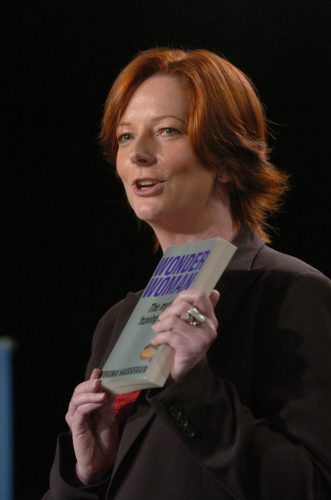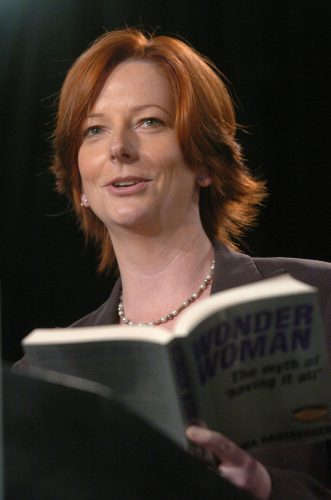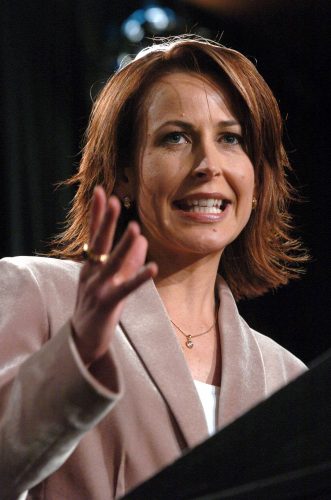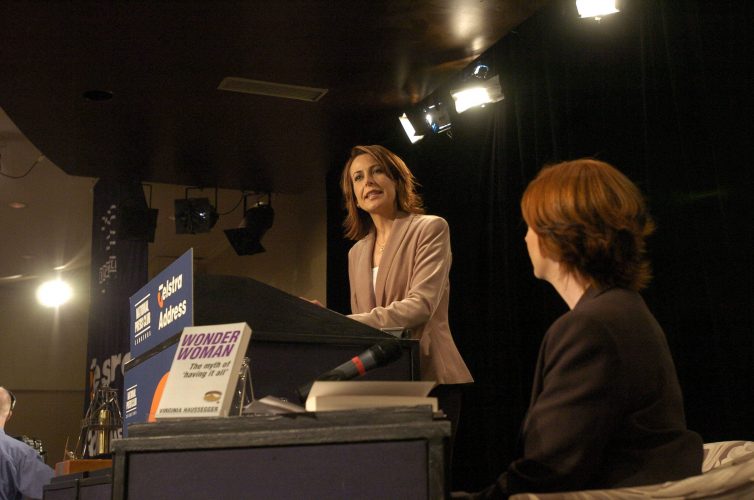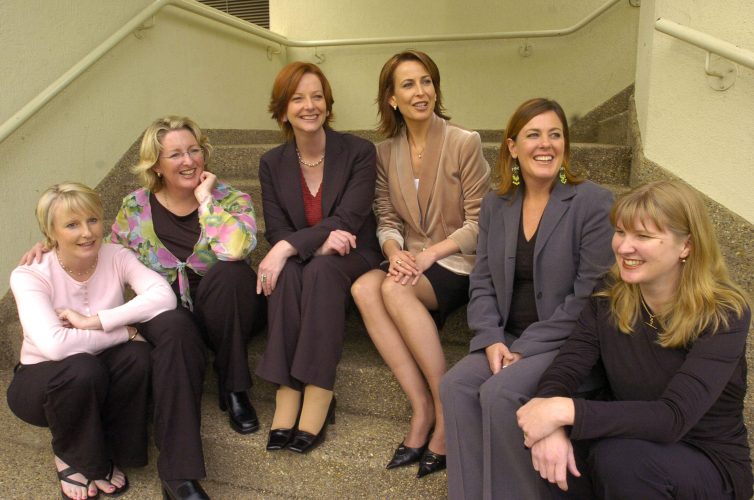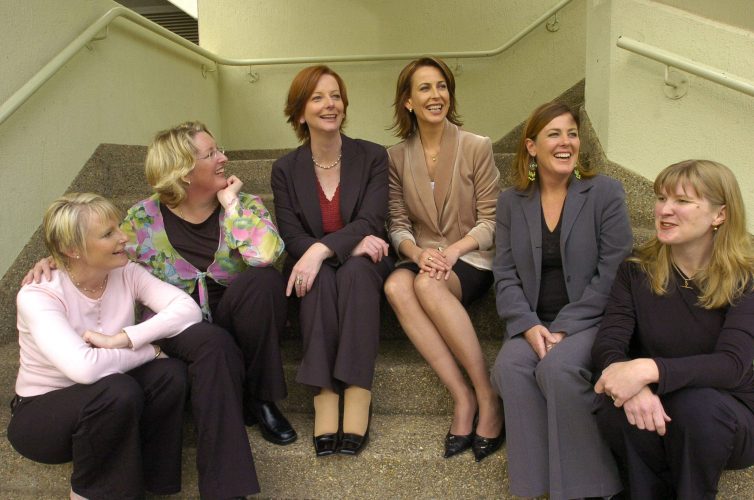So it’s come to this? A bunch of professional, hardworking women sitting around a table sipping champagne, eating scones, and drooling over a collective dream to be a … housewife.
The occasion was a baby shower and the guests were mostly in their late 30s. We spoke in a high whisper, for fear anyone should be eavesdropping. After all, this was the sort of illicit discussion that would have Betty Friedan turning in her grave. We all felt unfaithful, but weren’t sure to whom. Perhaps it was to our employers; or maybe to the enormous investments made in our education; or to our feminist foremothers; or perhaps just to Betty herself? Whatever the guilt cause, it felt like taboo.
But the fact is this little Canberra gathering of women isn’t alone in whimsically daydreaming about how nice it would be to throw it all in, stay home, cook, clean – a bit – and watch Oprah. And that’s bad news for Australia.
If current trends in education continue, according to the Federal Government’s Balancing Work and Family report, soon ”women will hold the majority of Australia’s human capital”. It’s no wonder then that the Treasurer, Peter Costello, is keen to make Australia the ”most female-friendly place on earth”. Costello’s economic holy trinity of ”Ps” – population, participation and productivity – depends on Australian women continuing to flood into the workforce and, most importantly, staying there.
The ”population” bit is a little tricky, as it’s supposed to happen in short interludes, with a prompt return to work. Among women with children under two years of age, who were previously employed, 92 per cent return to work before their baby turns one. That may seem a little hasty, but isn’t surprising given that Australia – unlike every other OECD country bar one – has no national paid maternity scheme. On top of that, women are sacked if they’re not back within a year of maternity leave.
But once back in the office, the ”participation and productivity” bit should flow like mothers’ milk: aided by cheerful workplace policies that bandy around words like ”family- friendly” and ”flexibility” with gay abandon.
So why is it not working? Why are some women wanting out? And if you don’t believe they are ask a young or new mother this: ”Would you like to race to work each day after dropping your baby at childcare, kids at school, packing lunches and ironing uniforms, only to find yourself hiding from your boss as you express milk in the loo, while making calls to price fairy cakes for an afternoon birthday party; then find you haven’t got your head around the morning’s meeting, so you spend the rest of the day trying to catch up until 3pm, when you charge out the door to collect kids and commence the evening shift, with baths, homework, washing, cooking, feeding and collapsing exhausted? ”
Or – and let’s pause here – would you rather ditch the work juggle- struggle and stay at home to be a mum for a while, at least while your kids are little?”
The no-brainers abound when talking about women, work and families. Which is perhaps why government inquiries into the domestic sphere are full of them. Take this for example, ”Do women’s and men’s different paid and unpaid work obligations affect their economic outcomes, health, relationship and life chances?”
Or this, ”Would equality between men and women require a more equal sharing of paid and unpaid work?” Surely they’re not waiting for an answer?
The former Sex Discrimination Commissioner, Pru Goward, showed admirable guts when she dared front the National Press Club to talk about housework two years ago. Next week, on the eve of International Women’s Day, the Human Rights and Equal Opportunity Commission will launch its final paper in Goward’s ”Striking the Balance” series.
The new report, ”It’s About Time”, couldn’t be more timely.
Only last week the Australian Bureau of Statistics announced that the pay gap between men and women is growing.
Currently women earn 83.6c to every male’s dollar. The pay punch gets even worse when you consider the effective tax rates faced by some mothers who try to increase their part-time work.
The National Centre for Social and Economic Modelling provided an alarming submission on this to last year’s Fair Pay Commission inquiry.
Under hypothetical family scenarios set by the commission, NATSEM found in one case the effective tax rate faced by a mother of two, when she increased her work from three to four days a week, was 98c in the dollar. Here both parents were on minimum hourly rates and the father worked full-time. But when you’re only getting 2c back for each extra dollar you earn, surely it raises the question – why work at all?
An increasing number of young mothers are choosing not to bother. While there are more women in the workforce than ever before, the participation rate of young mothers aged 25 to 34 has decreased by more than 6 per cent since 1990, and 5 per cent for mothers aged 35-44.
So is the opt-out all about money? While some young mothers are lucky enough to be able to afford not to work for a while, others clearly can’t afford to work. Or, is the opt-out about more than just finances? Is it about changing values and the desire to reclaim ”time”?
As we scoffed our scones and mused about becoming fully fledged housewives, the rub on the genie bottle was really a wish for more balance in our lives and more uncluttered time in which to live them. As we mark International Women’s Day next week it’s high time we talk seriously about ”time”. That is, of course, if you can afford the time.
